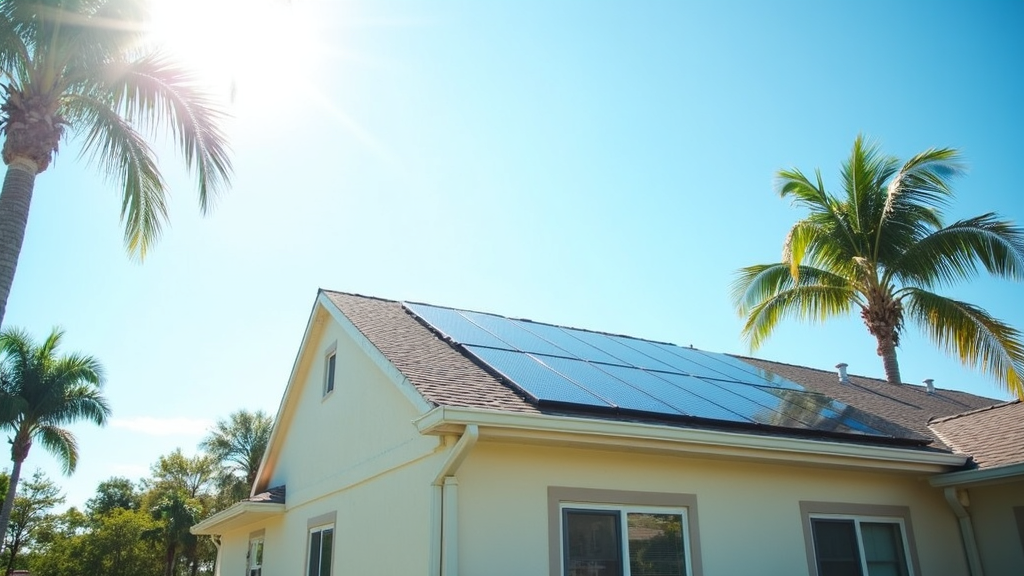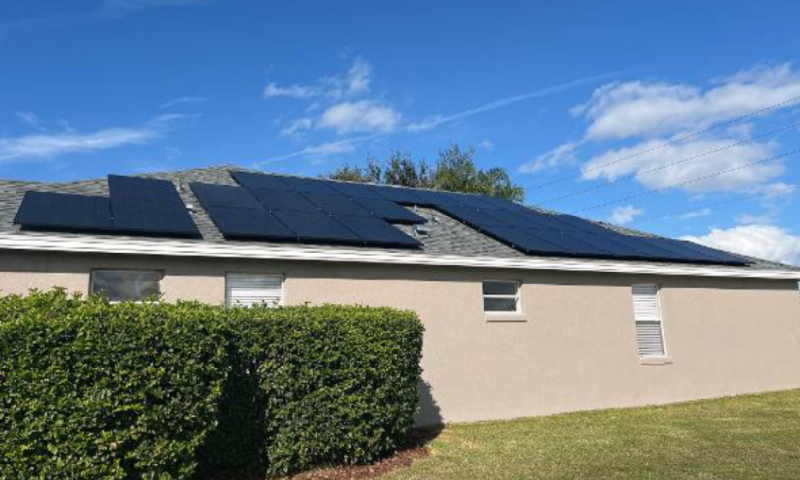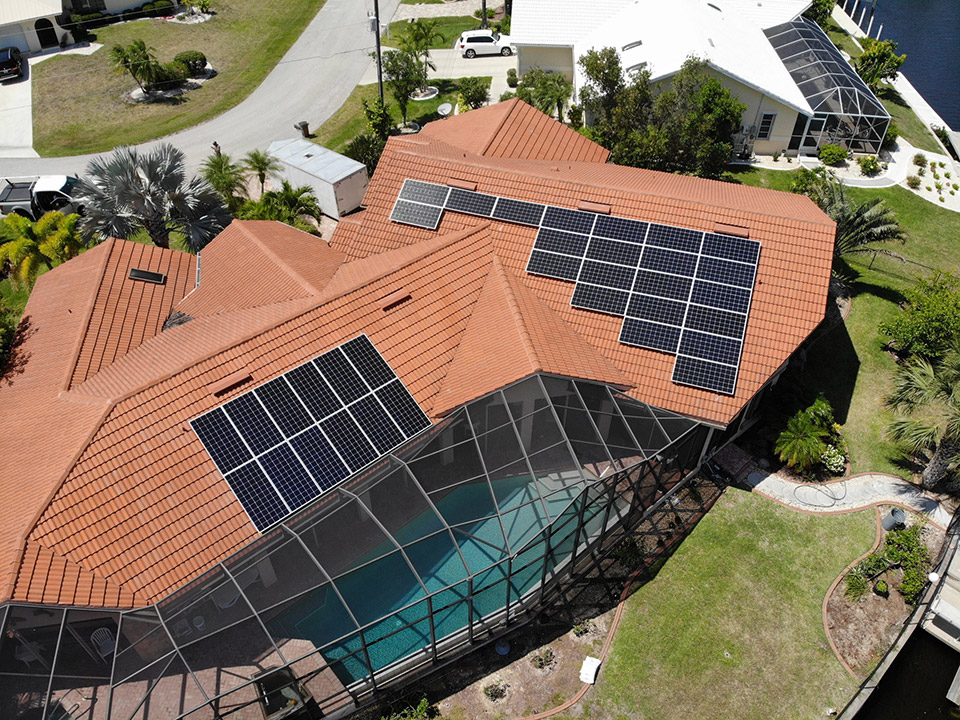Residential solar panel systems have grown really popular across the United States, and Fort Myers, Florida, is no exception. Many people are curious about how solar panels perform depending on where they live or the local weather. If you’ve been thinking about installing solar on your home in Fort Myers, getting a sense of how your region’s climate shapes the pros and cons is pretty important. I’m going to break down the key advantages and challenges—based on both region and climate—so you can figure out if solar is a good fit for your situation.

How Climate and Region Affect Solar Panel Systems
Solar panels work by capturing sunlight and turning it into usable electricity. In places like Fort Myers, where the sun tends to shine most of the year, this seems pretty straightforward. Still, not every location offers the same experience. Weather, humidity, hurricanes, and even local building codes can all shape how effective or tricky residential solar might be.
According to the Solar Energy Industries Association, states like Florida, California, and Arizona lead the way in residential installs. However, folks in the Northeast, Midwest, and Pacific Northwest are catching up, each with different considerations based on their unique climate.
The Benefits of Residential Solar in Fort Myers, Florida
Fort Myers is known for its sunny, subtropical climate; expect lots of blue skies, warm temperatures, and only occasional long stretches of overcast days. These local conditions create a bunch of specific upsides when it comes to going solar at home here.
- High Solar Production: South Florida homeowners get a lot of sun hours, which translates to steady electricity production from their panels year-round.
- Financial Incentives: Florida offers property tax exemptions for solar equipment, and there’s no state income tax to pay on savings, either. On top of that, the federal solar tax credit is available, making upfront costs easier to manage.
- Great for Battery Storage: Frequent afternoon storms and occasional hurricanes mean power outages do happen. Solar plus battery storage systems can keep your home powered through those moments.
- Good for Long-Term Savings: Florida’s utility rates have gone up in recent years. Solar users often see a reduction in their monthly bills and more predictable costs in the long run.
Challenges for Solar Panel Systems in Humid, Hurricane Prone Areas
While the Florida sunshine offers lots of positives, Fort Myers residents also face some special hurdles:
- Hurricane Risk: Hurricanes and tropical storms can damage roofs and panels. Modern systems are typically built to high wind resistance codes, but extra reinforcement and careful installation matter here.
- Salt and Corrosion: In coastal locations, salt air and humidity can gradually wear down equipment. In Fort Myers, most installers use corrosionresistant hardware, but regular cleaning and inspections are key for making a system last.
- Heat and Efficiency Loss: Solar panels work off sunlight, not heat—meaning the really hot days can sometimes make them a little less efficient. Most homeowners won’t really notice, but it’s something to keep in mind when reviewing your monthly energy output.
Comparing Solar’s Pros and Cons by Region and Weather
The experience of owning solar panels shifts depending on where you live. Here’s how some popular regions compare:
- Southeast (like Fort Myers): Loads of sunlight, storms, high humidity, and hurricane risk. Solar is especially popular, particularly with newer storm proofing techniques.
- Southwest (Arizona, New Mexico): Dry, sunny, less risk of corrosion. Panels get top output, but heat can impact longevity if not properly cooled.
- Pacific Northwest (Seattle, Portland): More rain and overcast skies, which means less annual solar generation. However, cooler temperatures can be good for panel efficiency, and state incentives are getting better.
- Northeast and Midwest: Lots of seasonal change, snow on roofs, and shorter sunny days in winter. Panels power down under snow but will work well once they’re cleared and get enough sun in spring and summer.
Things to Think About Before Installing Solar Panels in Fort Myers
Making the leap to solar is a big decision. Here is what I recommend taking into account, especially for folks living in regional climates like Fort Myers:
- Roof Condition and Orientation: Your roof should be in good shape, with plenty of south facing space for maximum sun exposure.
- Hurricane Prep: Systems should be installed to handle hurricane winds, with strong mounting hardware and proper documentation for insurance purposes.
- Humidity Protection: Ask about corrosionresistant panels, racking, and electrical boxes to deal with the salty, damp air.
- Utility Company Rules: Some local utilities can be a bit picky about how much solar you send to the grid or what rates you get paid. It’s worth checking their net metering policies.
Roof Condition and Sun Angle
Older or shaded roofs can have a big impact on system output. In Fort Myers, where tree shade is common in older neighborhoods, sometimes a small treetrim can make an installation much more productive. Most reputable installers will run a shading analysis as part of their evaluation.
Solar System Sizing for Hot, Humid Weather
High temperatures affect solar panel efficiency, but extra sunlight hours often make up for that reduction. Installers in Fort Myers often design slightly larger systems for homes with above average summer electricity use, especially if you run your air conditioner a lot.
Everyday Benefits for Homeowners in Fort Myers
- Lower Electric Bills: Abundant sunshine means steady savings, with some households seeing up to 60 to 80% reductions in annual electric costs.
- Storm Power Backups: Pairing solar with batteries is getting more common to ride through outages.
- Home Value Bump: A solar installation can make your property more attractive if you ever decide to move.
- EcoFriendly Reputation: Many people in the Fort Myers area enjoy knowing they are contributing to cleaner air and fewer carbon emissions.
Common Questions About Regional and Climate Factors
If you’re new to solar, some questions come up over and over, especially from folks living in Florida’s unpredictable weather. Here are a few I hear often:
Question: Won’t humidity and storms ruin my solar panels?
Answer: Leading manufacturers design panels and mounting systems to handle high winds and corrosion. It’s really important to select certified installers who use hardware rated for hurricane zones and coastal areas. Regular cleaning and checkups help with longevity.
Question: What happens if there’s a hurricane or my roof needs repair?
Answer: Panels can sometimes be removed and reinstalled if roofing work is needed, but there will be extra labor costs. After a major storm, roof and system inspections are important. Having a local installer who provides maintenance plans can be really helpful.
Question: Do solar panels work on cloudy or rainy days?
Answer: Yes, panels still produce electricity, just at lower rates. Systems are sized for your location’s typical weather, including cloudy periods, and Florida’s overall annual sunshine more than makes up for a few stormy days.
Practical Tips for Maximizing Solar Value in Hot, Humid Climates
Living in Fort Myers definitely means you need to keep climate in mind for your solar investment. Here are some tips I personally find useful for getting the most out of your solar system:
- Routine Inspections: Schedule at least one annual cleaning and inspection, especially after hurricane season, to keep the panels working at peak output.
- Consider Battery Backup: Power outages are less stressful when you have backup battery storage handling your fridge, lights, and basic appliances.
- Keep an Eye on Inverter Health: Inverters manage the power flow from your panels to the house. Hot, humid weather can shorten their lifespan, so keep them out of direct sun when possible.
- Stay Informed About Incentives: Florida’s rebate programs and solar credits change from time to time. Doublecheck what’s available before you sign a contract.
Why Solar Panels Make Sense in Fort Myers, and When to Wait
Most homeowners in Fort Myers will see real financial and practical benefits from solar, thanks to high sun exposure and strong state incentives. However, if your roof is shaded most of the day or you’re in a hurricane flood zone, waiting until those issues are resolved can sometimes be the wiser move. Careful research helps buyers make informed decisions and keeps projects smooth all the way through.
Switching to solar energy is a pretty exciting transition for most people. Whether you want to save money, keep your home comfortable during storms, or do your part for the environment, there are solid reasons to check out home solar, especially in a climate as sunny and vibrant as Fort Myers, Florida.



